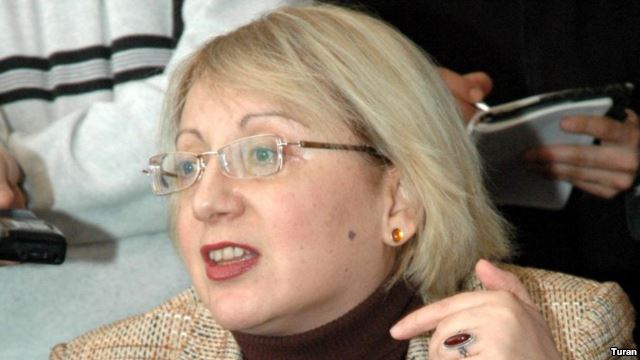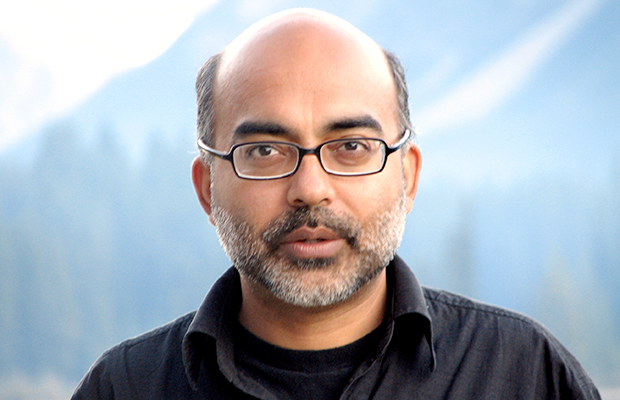6 Nov 2014 | Azerbaijan, Azerbaijan News, Europe and Central Asia, News and features

Two lawyers representing Azerbaijani human rights activist Leyla Yunus’s have been dismissed from her case. Javad Javaldi announced his suspension on 29 October, followed by Khalid Bagirov on 5 November. This comes as Azerbaijan’s ambassador to the United Kingdom says the government is “deeply committed” to strengthening its cooperation with the country’s civil society.
The prosecutor general’s office has not provided explanations for the suspensions. They have also prevented Bagirov from meeting with his client Rasul Jafarov, another prominent Azerbaijani human rights activist currently imprisoned.
The lawyers’ dismissal comes less than two weeks after Yunus said she had been denied access to her lawyers. In late September, her lawyers expressed concern at being unable to meet with Yunus in person or speak on the phone with her, saying they were concerned about her physical wellbeing. She has reportedly been beaten by both guards and her cellmate and denied medical attention.
The court has also reportedly extended Yunus’s detention until 28 February. She was initially arrested on July 30 with her husband, Arif, who recently had his pretrial detention extended until 5 March. The two are charged with high treason, spying for Armenia, illegal business activities, document forgery and fraud.
Both detention extensions go against calls from the European Parliament to Azerbaijan to release political prisoners and reform human rights. Last month the European Union praised President Ilham Aliyev when he announced he would release 80 prisoners, including some human rights activists.
Thorbjørn Jagland, secretary general of the Council of Europe and chair of the Norwegian Nobel Committee, wrote on Monday that Azerbaijan has been “repeatedly warned…over its poor human rights record”.
In a response to Jagland, Ambassador Tahir Taghizadeh wrote in a letter in The Guardian on Thursday that his country has “come a long way in strengthening democracy and human rights over the last 23 years.” He added that “there still exists a long way to go,” and the government looks forward to working with civil society to resolve “human rights issues”.
This article was originally posted on 6 November at indexoncensorship.org
5 Nov 2014 | Guest Post, India, News and features, Politics and Society, Religion and Culture

Novelist Jaspreet Singh’s latest novel Helium explores the far-reaching impact of November 1984.
That November is a memory of fire. I saw a burned book, first time in my life. That November my sister’s school was partly reduced to ashes. My entire family survived one of the darkest moments in recent Indian history.
Only a few days before, still recovering from jaundice, I had walked faster than usual to my own school in South Delhi. Around mid-day, we were in the biology lab, dissecting. A strong odour of chloroform filled the laboratory. That is when our biology teacher cancelled the class and walked to my bench and put an arm around my shoulder. You walk carefully all the way back home, she said.
I made it home. But a couple of days later, a mob passed by our block, attacking Sikh citizens. We were the lucky ones. We were able to take refuge in a courageous neighbour’s house.
“Those who survived are not true witnesses.” The Italian writer Primo Levi’s insight into mass violence in Europe is also valid for Delhi and other cities across India.
Only the dead are true witnesses. But the living have come to know a lot. That November 1984, India’s ruling Congress Party used state-controlled radio, television and the dreaded police force to conduct a seamless genocidal pogrom. After Indira Gandhi’s assassination, her son Rajiv Gandhi succeeded her as prime minister and enabled the carnage. Nothing was spontaneous. Cabinet ministers and members of parliament hired and directed mobs to burn to death as many Sikhs as possible. Women were brutally gang-raped. Across India.
Days later, Rajiv Gandhi, justified the violence. Instead of being denounced, he led his party to a landslide victory in parliamentary elections that year, and rewarded several perpetrators by making them cabinet ministers.
Three decades later, not a single prominent politician, cabinet minister, bureaucrat, judge or high-ranking police officer has been brought to justice. (No full and independent inquiry was ever conducted.)
To this day the Indian Parliament has not condemned the anti-Sikh pogrom. The event is wrongfully referred to as “riots”. In vain one looks for hope within society, but it seems the depths of horror and suffering do not disturb the inner life of the nation. A huge crime against humanity has been reduced to a “Sikh issue.” As recently as this year, Rajiv Gandhi’s son, Rahul, tried to defend the indefensible, denying the criminal culpability of his late father.
As much as the Congress party would like to forget, every November there is an anniversary, and the ghosts of 1984 return. The new ruling Bharatiya Janata Party (BJP), led by Narendra Modi, selectively invokes 1984 for its own perverse reasons. (This party was responsible for the 2002 Gujarat violence, a pogrom it would like to forget).
To date, the Modi government has taken no steps to provide justice to the victims of the pogrom in 1984.
India’s “democracy” has failed the victims and survivors extraordinarily for the last 30 years. Justice Ranganath Misra, a sitting supreme court judge, the first one to investigate the 1984 carnage went out of the way to suppress truth and to shield and absolve senior Congress party leaders. For his sinister services the party appointed him a member of the upper house of parliament and made him the first chairman of National Human Rights Commission of India. His report had caused a real outrage. Likewise Justice Nanavati’s 2005 report led to massive demonstrations by thousands of people still processing complicated grief and trauma.
For several years now it was unclear whether the international community was aware of the enormity of November 1984. But in 2011 Wikileaks revealed a slice of what the US government has known for a while: “…Congress party leaders competed with one another to see which wards would shed more Sikh blood.”
A pogrom is a wound on the psyche of the entire collective and without justice, mourning and reconciliation, mass-violence often recurs. It is time the United Nations and the country’s major trade partners start playing a prominent role to make India acknowledge the grand crime (committed against its own citizens) and reform its dangerously dysfunctional criminal justice system.
This essay was posted on Nov 5 2014 at indexoncensorship.org with permission of the author
4 Nov 2014 | Belarus, Campaigns, Statements
Ambassador Extraordinary and Plenipotentiary of the Republic of Belarus
to the United Kingdom of Great Britain and Northern Ireland
Ambassador Extraordinary and Plenipotentiary of the Republic of Belarus
to Ireland with concurrent accreditation
Mr. Sergei Aleinik
6 Kensington Court, London W8 5DL
3 November 2014
APPEAL
Dear Mr. Aleinik,
Index on Censorship is alarmed by the news that a well-known human rights defender, Elena Tonkacheva, has had her permit to reside in Belarus canceled and may be deported from the country.
Elena Tonkacheva, Chairperson of the Board of the Legal Transformation Center, although being a citizen of the Russian Federation has permanently resided in Belarus since 1985, and for years has been engaged in educational, analytical and research work in the field of human rights. Ms Tonkacheva is a highly qualified expert in law and human rights; the organisation headed by her is one of the leading human rights NGOs in Belarus.
On 30 October 2014, Ms Tonkacheva was notified about the cancelation of her residence permit and on 5 November 2014 a decision will be made as to whether she is to be deported from Belarus. The formal reason for that are administrative breaches (insignificantly exceeding speed limit when driving).
However, the disproportionate measures used by the Belarusian authorities in this case give grounds to believe that these minor breaches are used solely as a pretext to punish Ms Tonkacheva for her principled position and long-term human rights work and either to stop or create considerable obstacles in her human rights activities.
In this connection, we appeal to the Belarusian authorities to:
− Repeal the decision to cancel Ms Tonkacheva’s residence permit and not to deport her from Belarus;
− Take effective measures to protect human rights defenders and provide them with a possibility to carry out their human rights activities without any obstacles, as stipulated in the UN Declaration on the Right and Responsibility of Individuals, Groups and Organs of Society to Promote and Protect Universally Recognized Human Rights and Fundamental Freedoms from 9 December 1998;
− Be guided by the recommendation of the UN Special Rapporteur on the situation of human rights in Belarus to “recognize the important role of human rights defenders, whether individuals or members of civil society organizations, and guarantee the independence of civil society organizations and human rights defenders, enabling them to operate without
the fear of reprisal.”1
Sincerely,
Index on Censorship
1 A/69/307 Report of the Special Rapporteur on the situation of human rights in Belarus
CC.
President of the Republic of Belarus
Aliaksandr Lukashenka
Belarus, 220016, Minsk, K.Marks Str., 38
Fax + 375 17 226 06 10
E-mail: [email protected]
Minister of Internal Affairs of the Republic of Belarus
Ihar Shunevich
Belarus, 220030, Minsk, Gorodskoy Val Str., 4
Fax + 375-17-218-76-02
E-mail: [email protected]
Office of Citizenship and Migration Affairs
Main Internal Affairs Directorate of Minsk Municipal Executive Committee
Belarus, Minsk, Nezavisimost Ave, 48Б
Fax +375-17 331-81-6
E-mail: [email protected]
Department of Citizenship and Migration
Pervomajski District Office of Internal Affairs of Minsk
Belarus, Minsk, Belinski Str., 10
Fax+375-17-280-01-62


